When Do Babies Stop Drinking Formulas?
42 hours of research 4 minute read

Baby formula is a nutritious and healthy alternative to breast milk. Some parents, however, wonder when they should stop feeding their baby formula. When is the best time to stop your baby from drinking formula milk? If you're not sure, there's no shame in asking your pediatrician.
When Is It Time to Stop Feeding Formula Milk?
Some babies are ready to stop drinking formula milk at 8 months. Other babies may not be ready until they are a year old, or even older!
If you've decided your baby has outgrown formula (and he/she is still eating solid foods), there are no hard and fast rules about when this should happen—it depends on your child's age and development level at each feeding session during which he/she is drinking either breast milk or formula without supplementing with anything else like cereal or vegetables—but most experts agree that once infants reach 12 months old their digestive systems have sufficiently developed enough but require additional nutrients from certain foods such as cow’s formula milk.
When Will My Baby's Stomach Begin to Digest Solid Food?

By the time your baby is six months old, their stomach has grown larger and has developed an increased amount of robust gut bacteria. At this point many parents begin starting to experiment with some basic solid foods beyond formula, since your baby is increasingly able to digest foods other than formula. Teeth begin to appear in babies at this age as well. The first teeth appear around six months, but they can appear as early as three months or as late as twelve months.
If you haven't already, you may start introducing solids to your child at this point. Breast milk or formula mixed with cereal and fruits with mashed bananas or applesauce added to improve texture for easier chewing and digestion are examples of first foods.
When Should You Wean Your Baby Off Of Formula?
Many parents are unsure when to start weaning their baby off formula. The truth is that every baby develops at their own pace and will eventually stop drinking formula. Some babies can transition to a sippy cup or regular cup as early as 12 months, while others may need an extra year or two.
In general, the average age for introducing solid foods is around 6-9 months old (though some babies start earlier and some start later), so you'll most likely start weaning your baby from formula between these ages.
Introducing Solid Foods: 6 Months
Introducing solid foods to your baby should be done gradually and with caution. The first step is to introduce rice cereal, which contains iron and other nutrients that babies do not receive from formula or breast milk. Begin with one teaspoon per day and gradually increase to three teaspoons per day over a few days. At this age, babies can be introduced to other grains such as oatmeal (1/4 cup for every month of age).
The following step is to incorporate new flavors such as fruits, vegetables, meats, and fish. You should experiment with single-ingredient purees to avoid cross-contamination between foods that may cause allergies later in life, such as fresh organic applesauce but not apple pie! It is recommended that foods be introduced once a week so that your child's digestive system can adjust before progressing to larger portions or more challenging flavors like meat or fish.
Making the Transition: 12 Months & Beyond
When you believe your baby is ready to stop using formula, make the transition gradually.
- Combine a small amount of formula with breastmilk or water. It may take some time for your baby to adjust to the taste of less formula and more breastmilk or water.
- Reduce the amount of formula and increase the amount of breastmilk or water by 1/4 cup every three days until they are receiving 24 ounces or less of formula per day, at which point you can completely eliminate it from their diet if desired.
- Your baby should be eating a variety of foods and drinking less formula by the age of one year. A 12-month-old should consume three meals per day and 24 to 32 ounces of formula per day. This can be divided into three or four feedings spread throughout the day.
- If you're breastfeeding, this is a good time to stop because your child's diet will now include more solid foods that will provide all of the nutrients they require.
- It is critical not to rush this process because it can take up to two years for your child's digestive system to mature sufficiently to digest food without vomiting or diarrhea.
How Do You Wean Your Baby Off Formula?
It is time to wean your baby off of formula. Here's how it's done:
- Reduce the amount of formula you give your baby by one ounce per day for a few days before reducing it again.
- Continue to reduce the amount of formula you use until you're down to none, or until they've replaced their bottles with water.
American Academy of Pediatrics Recommendations
The American Academy of Pediatrics recommends that babies be breastfed at birth, but this is not always possible. If you need to supplement your baby's diet with formula, you should know how and when to do so.
The formula contains all of your baby's nutritional needs, including carbohydrates and proteins from milk or soy. It's a good thing that there are some organic formulas that are easy to digest and can help the baby gain weight like breastmilk.
What Formula Milk Is Suitable For Toddlers Over 12 Months?
Toddler formula milk is suitable for children over 12 months. It has the same nutritional content as breast milk and is nutritionally complete, so it can be used by both breastfed babies and those who are bottle-fed.
These are the top formulas that parents love for their toddler and help them during weaning:
✓ Age: 12+ months
✓Contains Probiotics & Prebiotics
✓ No sugar, no corn syrup, no soy
✓ No starch
✓ HiPP's most popular formula
Check PriceHiPP Dutch Stage 3 is a Toddler Formula that is a lactose-rich formula based on organic skim milk for babies aged 12 months and up. This gentle formula is clean, with simple ingredients, and nutritious, with essential vitamins and minerals needed to support the rapid growth of babies entering their toddler years.
✓ 100% Organic
✓ Made from skimmed cow’s milk
✓ Contains Probiotics & Prebiotics
✓ Contains DHA and Omega 3 for brain development
✓ No sugar, no corn syrup, no soy
✓ No GMO
✓ No Maltodextrin
Check PriceHiPP German Stage 3 Combiotic Organic Baby Formula is a delectable organic formula for babies aged ten months and up. This nutrient-rich clean formula can be used as a complete substitute for breast milk or as a supplement to breast milk. HiPP German Stage 3 can also be used as your baby weans off breast milk or transitions away from a different baby formula. This organic lactose-based formula is an excellent complement to HiPP German Stages 2 and 1.
✓ Age: 12+ months
✓ Clean formula ingredients
✓ Demeter biodynamic certified
✓ Contains natural whey, DHA, & ALA
✓ Holle's most popular cow formula
Check PriceHolle Bio Stage 4 is a nutritious and organic formula for babies aged 12 months and up that is free of soy, sugar, corn syrup, wheat, and GMOs, promoting a healthy immune system. This formula can be used as a complete replacement for breast milk or as a supplement and replacement for breast milk as your toddler weans. This pure formula is high in essential vitamins A, C, and D, as well as critical minerals for continued baby development and healthy growth.
✓ 100% Organic
✓ Made from skimmed cow’s milk
✓ Contains Probiotics & Prebiotics
✓ Contains DHA and Omega 3 for brain development
✓ No sugar, no corn syrup, no soy
✓ No GMO
Check PriceIdeal for children aged 12 months and older, HiPP UK Stage 3 is rich in vital vitamins and nutrients required in the early stages of toddlerhood. This fully nutritious formula can be incorporated alongside breastfeeding, during the transition to solid foods, or as a full meal replacement for breast milk.
✓ Contains Probiotics & Prebiotics
✓ No sugar, no corn syrup, no soy
✓ Can be used alongside solid foods
✓ Continued nutrition for toddlers
Check PriceMaking sure that your developing toddler's nutritional requirements are met is easy with HiPP 1+ Years Kindermilch Combiotic. It works well for feeding in a bottle or sippy cup as well as for enhancing the flavor and health benefits of warm cereals, porridges, or mashed foods. It has the fantastic benefit of having a significant protein content that is ideal for toddlers who are growing quickly.
✓ Contains Probiotics & Prebiotics
✓ No sugar, no corn syrup, no soy
✓ Can be used alongside solid foods
✓ Continued nutrition for toddlers
Check PriceChildren 24 months of age and older can consume the Hipp 2+ Years Combiotic Kindermilch formula drink from a cup. Contains less protein and is made with carefully chosen components. It contains essential vitamins and minerals such as iron and vitamins A, C, and D. The best time to consume this mixture is in the morning, along with meals, or during dinner.
✓ 100% Organic
✓ Made from skimmed goat’s milk
✓ Contains Prebiotics
✓ No sugar, no corn syrup, no soy
✓ No starch
✓ No GMO
Check PriceThis HiPP Dutch Stage 3 Organic Goat formula contains high-quality organic components that many parents look for in their baby formula, and it's safe to use from the age of 12 months. This organic goat formula is ideal for toddlers who are rapidly developing. Only A2 beta-casein protein is used in the formula; no A1 beta-casein protein is included. Lactose intolerance is known to be caused by this protein. If your kid is showing signs of lactose intolerance or is already suffering from it, HiPP Dutch Goat formula could be the answer.
✓ 100% Demeter Certified Organic
✓ Made from skimmed cow’s milk
✓ With A2 beta-casein protein
✓ Contains organic lactose
✓ No Probiotics & Prebiotics
✓ No sugar, no corn syrup, no soy
✓ No GMO
Check PriceFor kids who are at least 12 months old, Holle A2 Stage 3 is one of the best options. A2 milk from Holle is 100% organic and Demeter-certified. It is made with only organic A2 cow's milk with a variety of vitamins and minerals to deliver the best nourishment possible. Additionally, DHA and ARA are also included to support the growth of the muscles, eyes, and brain.
✓ Age: 10+ months
✓ 100% EU Certified Organic
✓ Made from skimmed goat’s milk
✓ Contains DHA and Omega 3 for brain development
✓ Contains organic lactose
Check PriceHolle Goat Stage 3 baby formula is for babies aged 10 months and up. Allow a goat milk-based formula to nourish your baby's health. Goat milk is a wonderful choice for rearing a healthy baby, with more calcium, vitamins, and less sugar. Holle Stage 3 is ideal for parents who want their children to benefit from goat's milk formula. It contains naturally occurring carbs, which help your baby feel satisfied after the first feeding.
✓ Age: 12+ months
✓ 100% Demeter Certified Organic
✓ Made from whole organic goat’s milk
✓ Contains DHA and Omega 3 for brain development
✓ Contains organic lactose
✓ No Probiotics & Prebiotics
✓ No sugar, no corn syrup, no soy
✓ No GMO
Check PriceHolle Goat Stage 4 baby formula is tailored for toddlers aged 12 months and up. It’s a gentle, nutrient-rich follow-on formula made from organic whole goat’s milk—perfect for growing toddlers with developing dietary needs. With naturally occurring A2 milk protein and lactose as its main carb source, Holle Stage 4 is designed to support healthy digestion and sustained energy. It’s ideal for parents seeking a clean, European-certified organic formula that promotes fullness and cognitive development.
✓ Age: 10+ months
✓ 100% Demeter certified (Organic++)
✓ No sugar, no corn syrup, no soy
✓ Contains natural whey, DHA, & ALA
✓ Simple ingredients list
Check PriceHolle Organic Infant Goat Milk Follow-on Formula 3 is an organic goat's milk-based follow-on milk. The goats are cared for according to organic farming standards (EU organic law). Holle Organic Infant Goat Milk Follow-on Formula 3 is a nutritional supplement for infants aged 12 months and up and should be given as part of a balanced diet.
✓ 100% Bioland certified (Organic++)
✓ No sugar, no corn syrup, no soy
✓ Contains DHA and Omega 3 for brain development
✓ No Probiotics & Prebiotics
✓ No sugar, no corn syrup, no soy
✓ No GMO
Check PriceThis formula is pure, uncomplicated, nutritionally balanced, and promotes positive growth. Lebenswert Stage 3 is a complete substitute to breast milk for babies and toddlers aged 10 months and up, and can also be used as a breast milk supplement and meal enhancer. It is based on organic skim milk and contains organic maltodextrin that acts as a flavor and consistency balancing agent. Maltodextrin is a complex carbohydrate that is very easy to digest and releases energy slower than other simple carbohydrates.
✓ No palm oil, no soy, no maltodextrin
✓ Contains DHA & ALA
✓ Natural Prebiotics
✓ Available in 3 age-specific stages
Check PriceWhole milk is a natural source of Milk Fat Globule Membrane (or MFGM), which has been identified in human breast milk and is found in Kendamil's full-cream recipe. This recipe is suitable for vegans. It's also made with prebiotics GOS to aid in the development of your baby's natural gut microbiome. Kendamil Classic Stage 3 has a whey: casein ratio of 20:80, which closely resembles the logical progression of a mother's breast milk as her child grows.
✓ No palm oil, no soy, no maltodextrin
✓ Natural Prebiotics
✓ Contains Plant-Based DHA and ARA
✓ EU and British Soil Association Certified Organic
Check PriceKendamil Organic Toddler Formula stands out as one of the most sought-after and highly acclaimed organic infant formulas as it uses EU-certified organic cow's whole milk sourced from Red Tractor-accredited farms as its wholesome base. Dedicated to providing a formula that closely emulates natural human breast milk, Kendamil Organic exclusively utilizes full cream cow's milk to create a lactose-based option. Additionally, Kendamil toddler formula boasts a whey-to-casein ratio of 20/80, and their product being 100% Vegetarian Formula.
✓ Made from whole goat’s milk and highest quality full cream ingredients
✓ Contains Natural Prebiotics
✓ No Maltodextrin
✓ No Starch
✓ No sugar, no corn syrup, no soy
✓ No GMO
Check PriceKendamil Goat Milk Formula Stage 3 is ideal for toddlers aged 12 months and above, especially for toddlers who may be sensitive to cow's milk formulas. This formula is free of any added sugars, corn syrup, maltodextrin, wheat, peanuts, GMO's, or synthetic preservatives. Additionally, because this is a goat milk-based formula, it does not contain alpha-S1 casein, which is an allergen found in cow's milk.
16. Aptamil Stage 3
✓ Allergy-Friendly (No Gluten, Wheat, or Nuts)
✓ Omega 3 & 6 LCPs (DHA & ALA)
✓ Ethically sourced ingredients
✓ Patented prebiotics for a healthy gut and immune system development
Check PriceAptamil Stage 3 Toddler Formula contains a patented blend of prebiotics sourced from natural origins, which aids in promoting the growth of beneficial gut bacteria. In comparison to earlier stages, this stage offers elevated levels of calcium to support bone health and is free from artificial preservatives. Enriched with DHA, a vital fatty acid for cognitive growth, Aptamil Nutribiotik Stage 3 is intended to provide the necessary nutrition for your child's well-being.
✓ Allergy-Friendly (No Gluten, Wheat, or Nuts)
✓ Omega 3 & 6 LCPs (DHA & ALA)
✓ With Prebiotics and Probiotics
✓ Offers a unique blend of key nutrients for toddlers
Check PriceAptamil Gold+ Stage 3 is a non-GMO cow's milk toddler formula that has been meticulously formulated to align with the changing nutritional requirements of active toddlers. With the inclusion of probiotics, prebiotics, and essential DHA, this advanced formula works together to contribute to your toddler's overall well-being.
You Decide if Your Baby is Ready to Give Up Formula Milk
You can decide if your baby is ready to give up formula milk. There are no hard-and-fast rules about when it's time for kids to stop eating breast milk or formula, but there are some things that parents should keep in mind as they start weaning their babies:
Don't force them to stop — your child may not know how much they need or want to drink at a given time. If you think your little one isn't getting enough milk, try increasing the amount of formula you give them until they show signs of needing less (such as throwing up).
Stopping Baby Formula - In Summary
Babies are quite resilient and will quickly adapt to dietary changes. If you're transitioning your baby from formula to cow's milk, go slowly at first. To begin, add some milk to the formula and gradually increase the amount of milk while decreasing the amount of formula over several weeks. If you're concerned about your baby getting enough nutrients, you can always supplement with iron-fortified cereals and vegetables or get a vitamin D supplement for him or her until he or she can drink enough milk on his or her own.
Most Popular Formulas For Older Babies
Organic Life Start is committed to providing accurate, reliable, and trustworthy information to parents and caregivers. We carefully choose credible sources and follow a meticulous fact-checking process to uphold the highest standards in infant nutrition and parenting advice. To learn more about our dedication to accuracy, please explore our editorial guidelines.
Link To Sources





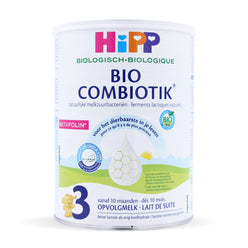

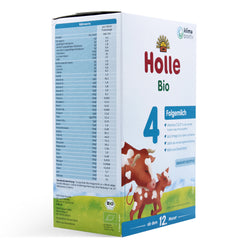
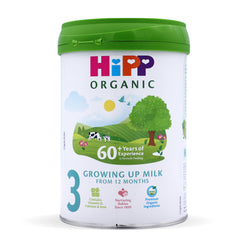
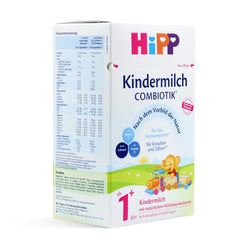
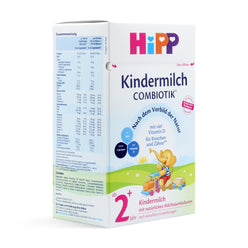
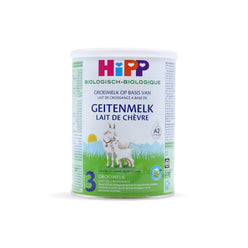
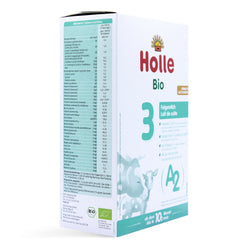
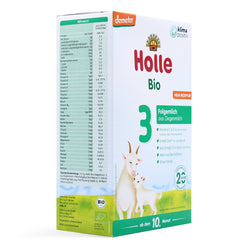
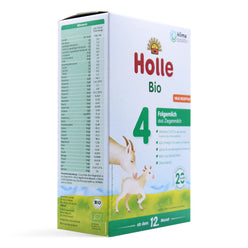
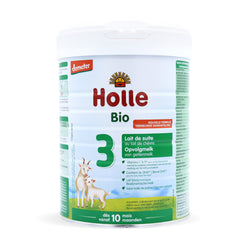
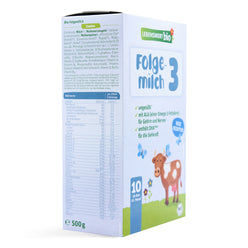
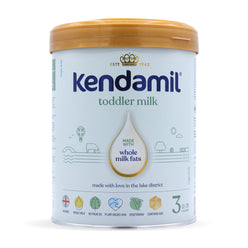
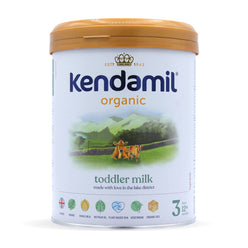
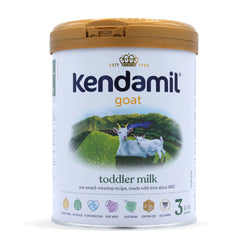
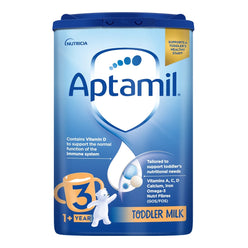
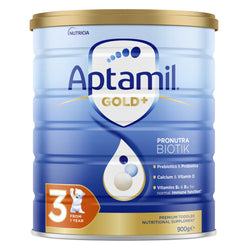
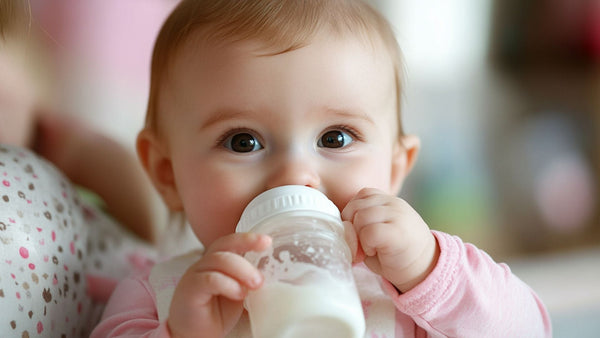





Denise -
We found that most guidance points to stopping infant formula around 12 months, but it really depends on how well a baby is eating solids and meeting nutritional needs. Watching appetite, growth, and overall comfort mattered more for us than a hard cutoff date. Our pediatrician helped us decide when formula was no longer necessary based on development rather than the calendar. It made the transition feel much less stressful knowing there isn’t one “right” timeline for every baby.
Mustafa -
December 11, 2025
I’ve seen so many different opinions on when to stop formula. It’s confusing trying to figure out what’s “right” when every parent and pediatrician seems to have a different take. For us, the most important thing was watching our baby’s cues—appetite, growth, and readiness for solids—rather than sticking strictly to a schedule. I’d love to hear what others found worked best for them: did you follow a guideline, or did you go by your baby’s development and comfort?
Ignacio -
November 27, 2025
This reminds me of when my baby was transitioning from formula to cow’s milk. We started by mixing a little milk into her usual formula and slowly increased it over a few weeks. At first, she wasn’t too happy about the taste, but she got used to it, and now she drinks milk just fine. It really helped to go slowly and keep track of her nutrients along the way.